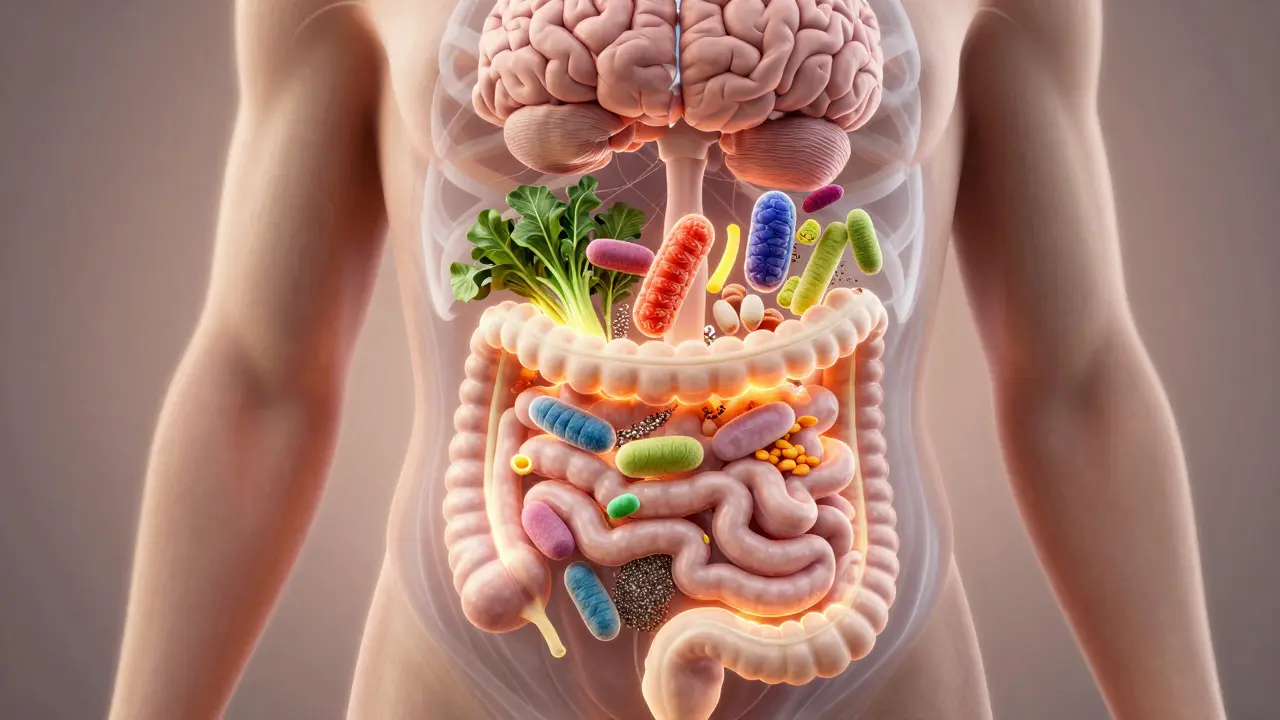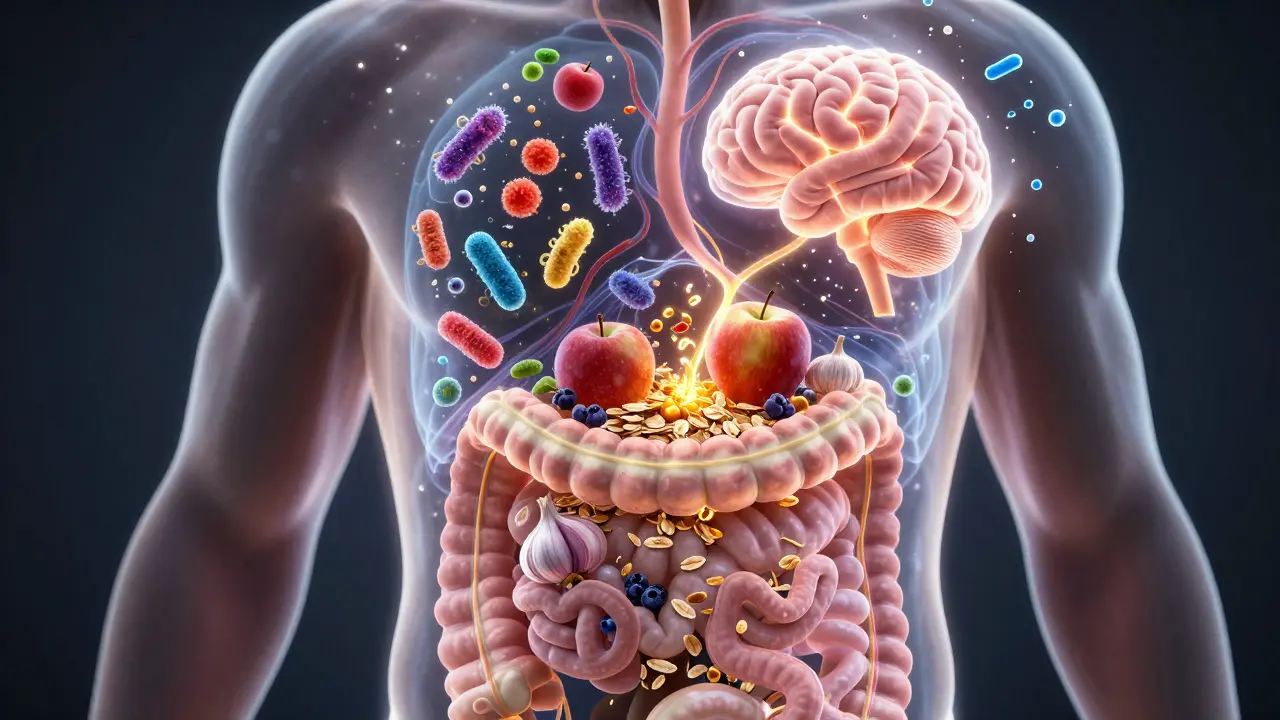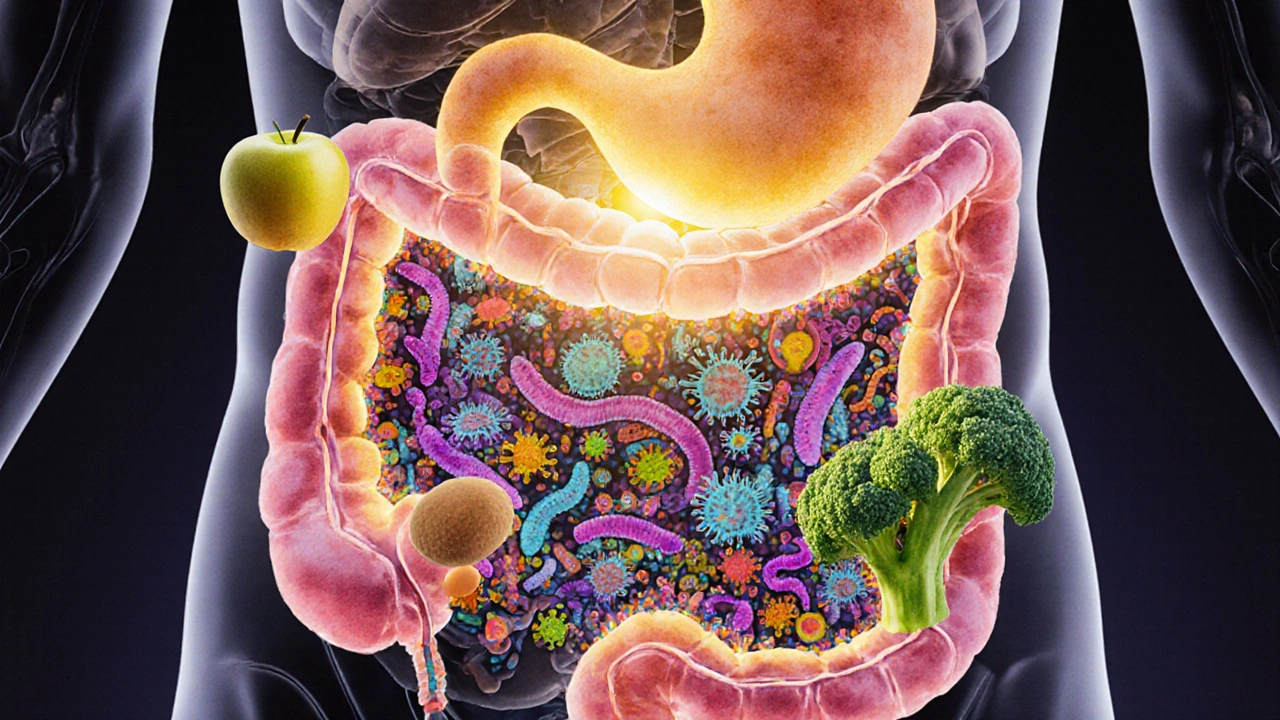Digestive Health: Simple Ways to Feel Better Every Day
Gut problems can ruin a day fast. If you're tired of bloating, irregular stools, heartburn, or low energy, small changes often help more than dramatic diets. This page gathers clear, practical advice and links to trusted articles so you can start improving digestion without overthinking it.
Think of your gut as an organ that responds to habits. Food choices matter, but so do stress, sleep, and movement. You don't need perfect meals—focus on steady wins. Add fiber, drink enough water, move daily, and cut back on heavy late-night meals. Those four moves alone shift digestion in weeks, not months.
Quick daily habits that actually work
Start meals with a vegetable or salad to add fiber and slow eating. Aim for 25 to 35 grams of fiber a day from beans, oats, fruit, and vegetables—this feeds good gut bacteria and makes stools regular. Sip water throughout the day instead of gulping; staying hydrated helps digestion and prevents constipation. Walk for 10 to 20 minutes after a meal when you can—light movement eases bloating and speeds stomach emptying.
Watch portions and timing. Eating large meals late at night raises the risk of reflux and poor sleep. Try to finish eating two to three hours before bed. Chew slowly and avoid swallowing air by cutting back on fizzy drinks and straws. If dairy or certain foods give you trouble, try a short elimination—remove the suspect for two weeks and reintroduce it to see the effect.
Practical tools and supplements
Probiotics can help for some conditions like IBS or antibiotic-related diarrhea, but choose strains backed by research and try them for at least four weeks. Fiber supplements such as psyllium work well when diet changes are hard. Ginger and peppermint may ease nausea and gas for many people, but peppermint can worsen reflux—test carefully. Keep a food and symptom log for two weeks if problems persist; that often reveals patterns quickly.
Stress affects digestion more than most people expect. Practice short calming routines: three deep breaths before meals, five-minute walks at lunch, or 10 minutes of mindful breathing in the evening. Poor sleep makes gut symptoms worse, so keep a consistent sleep schedule and avoid heavy screen use before bed.
When to see a doctor: get medical attention if you have unintentional weight loss, blood in stool, severe or persistent pain, or trouble swallowing. These signs need prompt evaluation. For chronic but non-urgent issues, start with your primary care provider who can suggest tests, diet changes, or a referral to a gastroenterologist or dietitian.
This tag page links to practical guides, recipes, and therapies that help with specific issues like constipation, reflux, and stress-related gut problems. Pick one habit to start this week and build from there—small steps add up fast.
Explore articles here on probiotic choices, fiber-rich recipes, stress-reduction, and massage or biofeedback options to find practical, tested ideas. Bookmark this tag and return when you want simple gut tips any time this year.
Rediscover the Power of Good Gut Health
- Arlo Sterling
- Feb, 17 2026
Good gut health affects everything from digestion to mood and immunity. Learn the real signs your gut is out of balance and how simple daily habits can restore it naturally.
Learn MoreThe Ultimate Guide to Improving Your Gut Health
- Jason Blackwood
- Jan, 5 2026
Learn how to improve your gut health naturally with food, lifestyle changes, and science-backed tips. Fix bloating, boost energy, and support your immune system by caring for your gut microbiome.
Learn MoreGut Health: The Secret Ingredient to a Happy Life
- Lorena Fitzpatrick
- Dec, 16 2025
Gut health is the hidden foundation of mood, energy, and immunity. Learn how food, stress, and sleep shape your microbiome-and simple steps to rebuild it for lasting well-being.
Learn MoreGut Health: The Unsung Hero of Your Immune System
- Desmond Marchbanks
- Oct, 28 2025
Your gut is home to trillions of microbes that train your immune system daily. Learn how food, stress, and lifestyle choices shape your defenses-and simple ways to strengthen them.
Learn MoreGut Health: Unlocking the Key to Better Wellness in 2025
- Isobel Dunbar
- Aug, 19 2025
Gut health affects digestion, immunity, mood, and energy. Learn why your gut matters, how it impacts your health, signs it's out of balance, and easy steps for a happier gut.
Learn More



